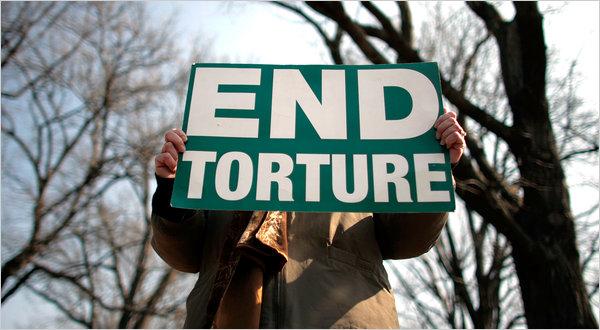The utility of torture


In previous days President Donald Trump said he was considering the return of harsh interrogation techniques of “enemy combatants” and return to so-called CIA “black sites.” According to him, intelligence officials had told him “torture absolutely works.”
These sites were especially used after the 9/11 attacks when President George W Bush declared the ‘war on terror’ to summit detainees and prevent a second attack that could be underway. Yet in 2014 the US Senate’s Intelligence and Security Select Committee issued its report on the use of torture under Bush administration and concluded torture was “not an effective means of acquiring intelligence or gaining cooperation from detainees.”
Following Trump statement, Geopolitical Futures’ George Friedman wrote an article referring to the utility of torture. First, torture is “rooted in the assumption that someone has vital information but won’t voluntarily give it up. By applying extreme discomfort or pain, you can cause him to change his mind and tell you what he knows,” he writes.
According to Friedman, the problem of torture is that when you know precisely what you want to know and from who you want to know it and are certain this person knows it, then torture is an efficient tool. But if you already have this intelligence then it is less time-consuming to analyze it again and decoded it than torturing that person.
Also, torture does not work efficiently as a screening tactic. “The problem with torture is not the amount of time needed to get someone to tell you something. […] But it could be days or weeks before you verified the value of what I told you and about that long before you figured out what question you should have really asked me,” wrote Friedman.
Instead, Friedman believes recruiting someone from the organization you’re looking IGNORE INTO is far more effective. A source that is prepared to speak, he says, will do it in a relaxed, open manner rather than in between punches. “Torture can reveal some facts, but understanding the enemy is far more complex than just facts.”
Besides its effectiveness is torture appropriate? The moral question of torture depends on each scenario but it is minimally connected to the practical question of torture.
On the other hand, Trumps intentions in signing an executive order to bring back CIA black sites would face resistance. Steve Kleinman, senior adviser to the FBI-led team that interrogates terrorist suspects said that weakening US legislation against torture was dangerous.
Also, Senator John McCain who chairs the Senate Armed Services Committee said, “the president can sign whatever executive orders he likes. But the law is the law. We are not bringing back torture in the United States of America.”
More so, “the United States president was elected and sworn in, and is thereby obligated to exercise his best judgment. And on this matter he may choose to be silent. I would, however, like to understand his definition of the utility of torture,” concluded Friedman.
LatinAmerican Post





